Ann Eubank: Flag flap

There is no explaining what causes men’s passion to ignite. But much to my surprise, I find that the thing that has electrified many of the people of Alabama is a “Flag;” a simple square piece of cloth that represents an era long gone, a piece of history that cannot be rewritten. BUT, THIS IS NOT ABOUT THE FLAG. Unfortunately, this is about erasing America’s past, and we have again been sidetracked by a media diversion. It is a ruse to occupy the right hand of the citizens while the left hand is taking away our freedoms. In the past few years much has been done to rewrite American history, making it fit their agenda and destroy our “Present” and “Future.” Governor Bentley’s knee jerk reaction and removal of the “Flag” and kowtowing to the left wing agenda, defines his lack of courage. This is who Governor Robert Bentley is. He announced he “has taxes to raise” on every Alabamian, has not spoken out about Speaker Mike Hubbard, being allowed to keep his leadership office after he was indicted for criminal corruption, and of course, gave Dr. Bice a 25% raise and continues to allow Common Core to be taught in our schools. All of these issues are about CONTROL and the stripping of Liberties from the Individual. They will never be able pass enough laws to end offending someone. They have removed God and Christianity from our schools, workplace, and the public square. The President granted illegal aliens the rights of a citizen, the Supreme Court overruled the states, and a majority of the people, to grant special status and marriage rights to same sex couples. They rewrote the law to save Obamacare again. All is about control and the “Fundamental Transformation of America.” Congress has allowed the federal government to control your freedom of religion, personal politics, healthcare, property, gun rights, and freedom of speech; A Congress that was elected to represent YOU. So why has this “Flag Flap” enraged the hearts of Southerners and become an important event? They will tell you “it represents the loss of States Rights.” “It’s the death of the 10th Amendment.” “They want to destroy our history and take away our heritage.” Good and valid points that I agree with as a descendent of those who fought in both the American Revolution and the War of Northern Aggression, as well as died at the Alamo. I have always revered being born a Southerner, and yes, the “Flag” is part of that heritage. I believe the Northern Virginia Battle Flag, commonly known as the “Battle Flag,” should be allowed to fly and not be completely eradicated from our history. It is a First Amendment Right. Now that you have been awakened over the “Flag Flap,” we need to get more engaged against the things that are destroying America now? The “Present” and “Future” of America are the reasons we should be marching in the streets. Ann Eubank is the statewide co-chair of Rainy Day Patriots, and the legislative chair of the Alabama Legislative Watchdogs. Ann is a frequent visitor of the Statehouse and has bridged the gap between strong advocate and respected resource for members. She is also a member of the Alabamians United for Excellence in Education Taskforce and several other Stop Common Core groups.
House approves fast-track trade bill with little Alabama support
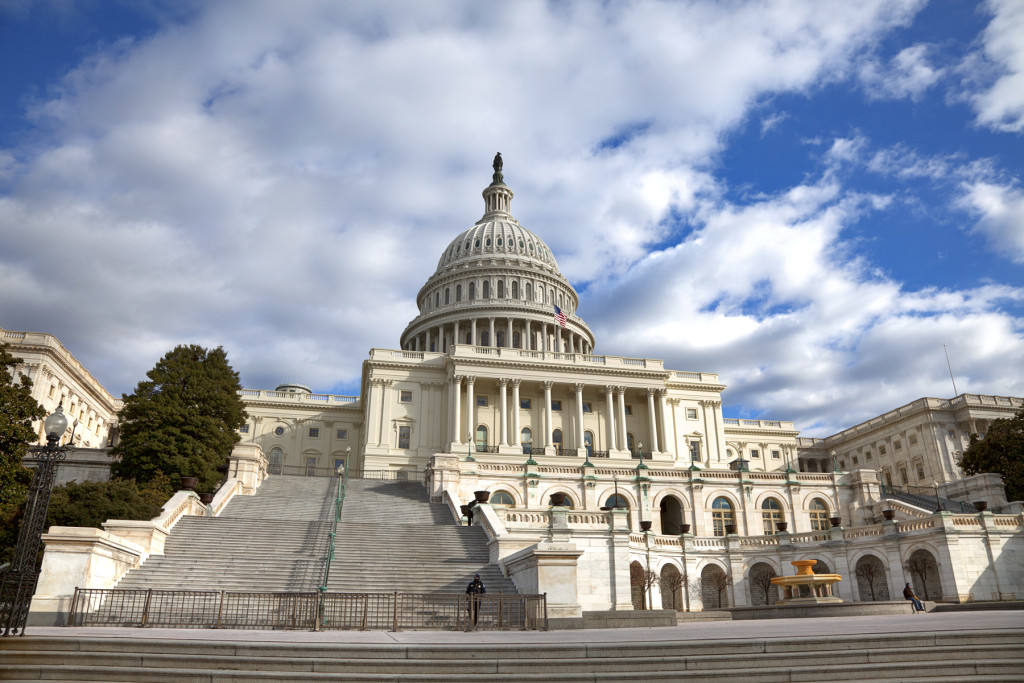
The House took the first of many steps toward reviving President Barack Obama‘s trade agenda Thursday, by narrowly passing controversial fast-track trade authority for the President. The 218-208 vote, with three of Alabama’s seven members voting yes, came less than a week after the trade legislation was quashed by the President’s own party. In last week’s vote, House GOP leadership paired the fast-track bill, Trade Promotion Authority (TPA), with a measure known as Trade Adjustment Assistance (TAA), which gives aid to workers displaced by trade. Both measures needed to be approved in separate votes for the entire package to move forward. Thursday’s vote stripped the fast-track bill of the the worker assistance provisions while still granting the president fast-track authority to negotiate a massive, 12-nation Trans-Pacific Partnership (TPP) trade deal. The bill now moves on to the Senate, where White House and GOP leaders are standing by, hoping to make a deal with pro-trade Democrats. Here’s a quick look at how the members of the Alabama Delegation voted and statements from their office: Representative Bradley Byrne (R – 01): Did not vote Representative Martha Roby (R – 02): Voted for TPA Representative Mike Rogers (R – 03): Voted for TPA Representative Robert Aderholt (R – 04): Voted against TPA Representative Mo Brooks (R – 05): Voted against TPA Representative Gary Palmer (R – 06): Voted against TPA Representative Terri A. Sewell (D – 07): Voted for TPA Roby: “There’s no question that trade supports jobs in Alabama, and it’s our responsibility to make sure trade agreements we enter into benefit American workers and serve our nation’s strategic global interests,” Rep. Roby said. “That’s why this Trade Promotion bill is important. It puts Congress in a much better position to ratify good multi-lateral trade agreements and to stop bad ones.” Sewell: “I continue to believe that President Obama should be given the same trade promotion authority as past Presidents. I trust that President Obama will do right by the American people, and the people of Alabama’s 7th Congressional District. President Obama has our backs, and we should have his. “President Obama has been unwavering in his support for promoting fair trade that protects American jobs and workers. I trust that President Obama will continue to protect the interests of the nation he has been elected to serve, and to uphold the values we hold dear. “I am deeply disappointed that Congress has yet to reauthorize the Trade Adjustment Assistance (TAA). TAA is a vital lifeline for displaced workers that provides the needed resources for training, employment services, and relocation allowances. Globalization and automation — irrespective of trade agreements — have created a need for greater support services for workers who lost their jobs through no fault of their own. It is my hope that my colleagues will reconsider the TAA vote because I strongly believe that TPA and TAA go hand in hand.”
Jeff Sessions continues to press conservative agenda on immigration
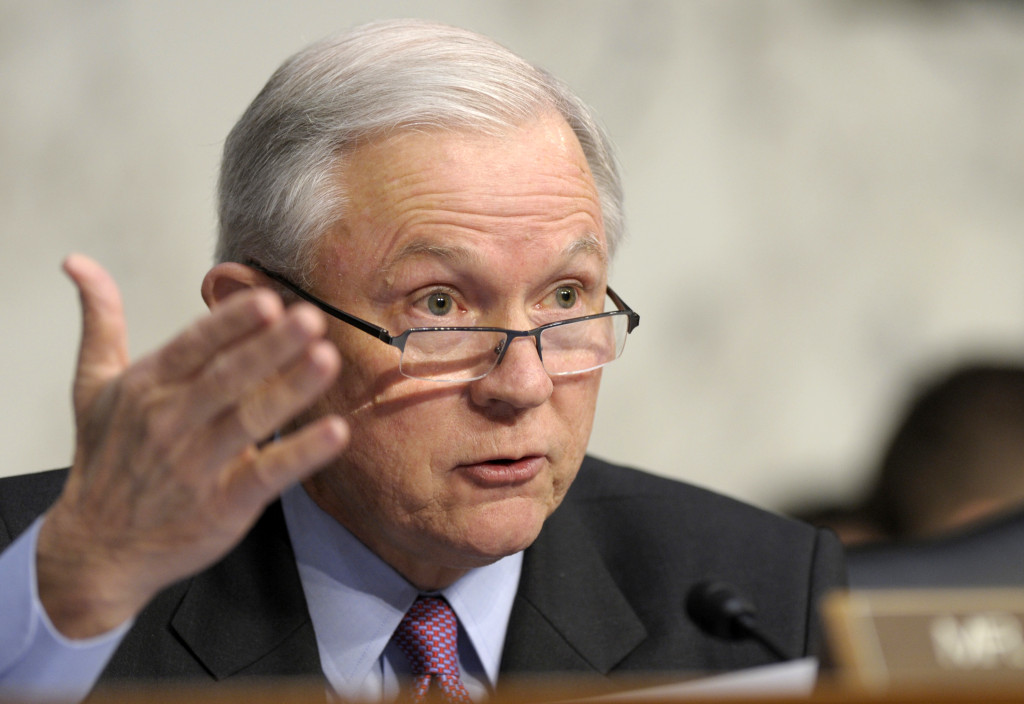
In a letter taking to task Obama administration officials over the release from state custody of more than 100 deportable immigrants who later went on to commit violent crimes, U.S. Sen. Jeff Sessions continued to work with Republican allies to advance a conservative immigration policy in the Senate. Sessions and U.S. Sen. Chuck Grassley — chairman of the Senate Judiciary Committee where Session has taken an active role lately — sent a letter addressed to Secretary of State John Kerry, Homeland Security Secretary Jeh Johnson, and Attorney General Loretta Lynch. Their letter railed against poor execution of deportation protocols by the federal Immigration and Customs Enforcement, formally requesting detailed answers to a list of more than 25 specific inquiries about why 121 suspected killers were allowed to pass through the federal immigration enforcement system and remain in the country. According to information provided by ICE, up to 121 homicides in the U.S. could have been avoided between Fiscal Year 2010 and 2014 had the aliens with criminal convictions been deported instead of released, Grassley and Sessions wrote. “This disturbing fact follows ICE’s admission that, of the 36,007 criminal aliens it released from ICE custody in FY 2013, 1,000 have been re-convicted of additional crimes in the short time since their release.” The senators pointedly asked the Cabinet members, appointed by President Barack Obama, whether their agencies are “fully leveraging existing tools and resources to prevent these dangerous outcomes.” “In the ongoing talks between the U.S. and Cuba, does the administration plan to make repatriation of all of those 30,000+ Cuban nationals, and not just some subset of that group, a condition precedent of granting diplomatic recognition to Cuba?” reads one question. “If not, why not?” The letter is in keeping with a long-term push on immigration on the part of Alabama’s junior senator. Last week, Sessions was vindicated in the conservative press after U.S. Rep. Paul Ryan expressed skepticism about Sessions’ claims that the Trans Pacific Partnership contains loopholes that could lead to a “flood” of new immigration. Ryan had called the language within the proposed TPP that would relax restrictions on the “Movement of Persons,” including professionals operating independently, an “urban legend.” Recent revelations about the trade deal, however, indicate that provisions to forbid mandatory interviews and economic means testing for visa-seekers are indeed part of the proposal, something that Sessions — dubbed by POLITICO as “the Senate’s anti-immigration warrior” — had spoken against. Senate Republican Whip John Cornyn of Texas called Sessions “perhaps the most vocal member of our conference” on immigration after he led the charge in confronting his own caucus in opposition of new H-1B visas for skilled foreign workers, saying it negatively affects domestic job-seekers. “We’ve got to ask — which hasn’t been asked — what does all this do to the ability of a college graduate who’s living at home with his parents because he can’t find a job?” said Sessions, chairman of the Subcommittee on Immigration & the National Interest. That’s a familiar note in his protectionist quest against labor pool distortions because of foreign labor. His approach to the issue evidently has struck a chord in his home state: Sessions was the only incumbent senator who ran unopposed in both primary and general elections in 2014. Sessions and Grassley gave the administration officials addressed in their inquiry a July 6 deadline to respond.
Hillary Clinton looks to build organizational edge in Iowa
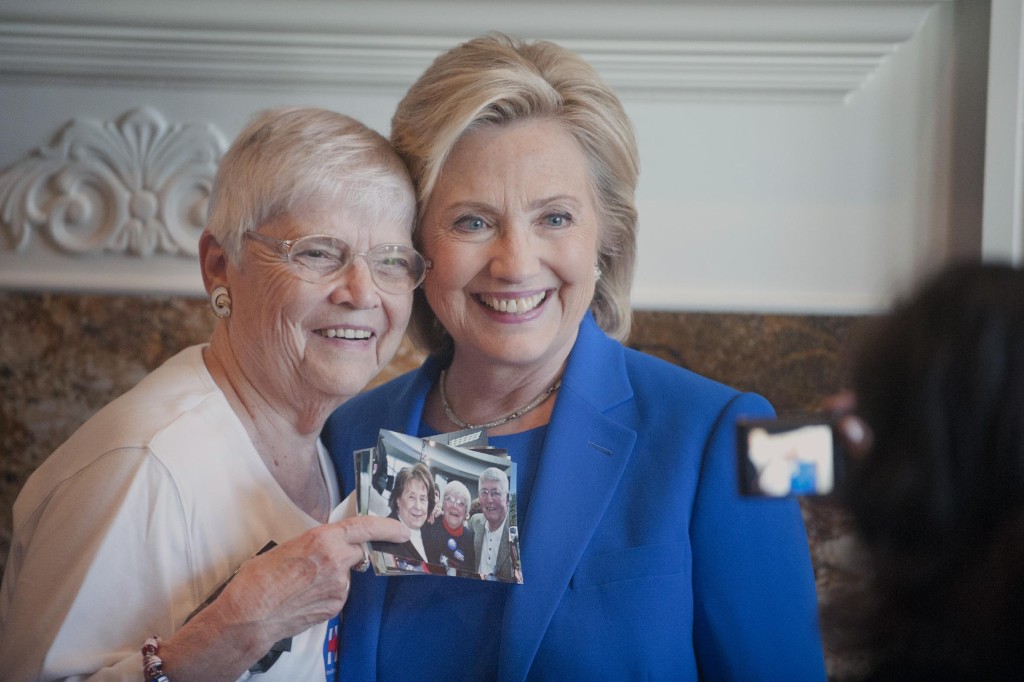
Seeking an army of volunteers, Hillary Rodham Clinton is trying to build an organizational edge in Iowa as some of her lesser-known Democratic rivals clamor for attention in the state that tripped up her first presidential campaign. Clinton flew to Iowa on Saturday night after her high-profile New York kickoff, telling supporters at a Sioux City house party that her campaign would seek to rally the country around an agenda for the future. “Everybody has a role to play,” Clinton said, urging supporters to sign up to join her campaign. Despite her dominant position in the Democratic primaries, Clinton’s allies are trying to erase the memories of her third-place finish in Iowa’s 2008 caucuses, the contest that fueled Barack Obama‘s rise to the White House. The former secretary of state’s Iowa event was streamed online to more than 600 similar gatherings around the country, covering every congressional district in an effort to add volunteers to the campaign’s roster. Clinton planned to address supporters at the Iowa State Fairgrounds in Des Moines on Sunday and then travel to the Mississippi River city of Burlington. But she had company in the state: One of her main Democratic challengers, Vermont Sen. Bernie Sanders, was campaigning across the state during the weekend. Former Virginia Sen. Jim Webb, who is exploring a potential Democratic bid, was holding events in Iowa on Sunday. During her New York speech, Clinton remained silent on some issues of critical importance to the Democratic base, most notably a Pacific Rim trade pact backed by Obama but opposed by organized labor, liberals and others who say it will cost the U.S. jobs. The agreement has not been finalized or submitted to Congress. Sanders, who has opposed the trade deal, again questioned Clinton’s refusal to say where she stood on the Trans-Pacific Partnership. “Most Democrats in the Congress are against it. But I don’t understand how you don’t have a position on this issue,” he said Saturday in Des Moines, where he opened a new campaign office. “You can’t take a position on a trade bill that you can’t see,” Clinton’s campaign manager, Robby Mook, told CBS’ “Face the Nation” on Sunday. Clinton and her advisers are not saying whether she supports legislation in Congress to give the president special negotiation authority on trade deals. In New Hampshire, former Maryland Gov. Martin O’Malley pointed to his executive experience while his campaign noted to supporters in an email that Clinton “didn’t say that she would take any substantive actions to hold Wall Street CEOs accountable for reckless behavior. Nor did she weigh in on the secretive TPP deal that could depress American wages and cost American jobs.” In New York, Clinton offered herself as a fierce advocate for those still struggling from the Great Recession. “I think you know by now that I’ve been called many things by many people,” Clinton said to cheers and laughter from the crowd of roughly 5,500 gathering on New York’s Roosevelt Island in the East River. “Quitter is not one of them.” Hours later in Iowa, Clinton added, “I don’t believe we should ever quit on our country.” Republished with permission of the Associated Press.
Bernie Sanders wants Hillary Clinton to take stand on trade deal
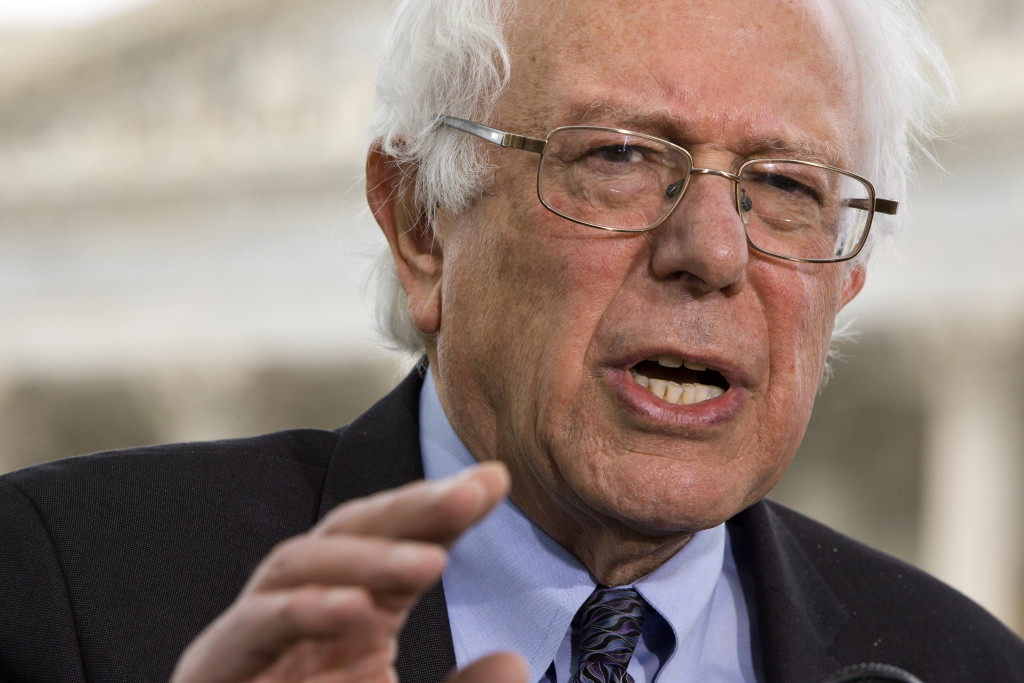
Sen. Bernie Sanders is questioning why Democratic presidential rival Hillary Rodman Clinton won’t take a stand on the emerging trade deal with Pacific nations, which he calls “enormously important issue” she’s been dodging. A day after launching his longshot campaign, the Vermont independent returned to neighboring New Hampshire on Wednesday, where a blunt voter told him she wants him to thrash Clinton in the primary race, not merely siphon some votes away from her. “Why can’t we ask Hillary to give up her spot and give it to you?” Jeanny Aldrich of Chesterfield demanded. “I could be wrong, but I suspect she would disagree with you,” Sanders quipped before saying he’s never run a negative campaign and won’t start now. Instead, he said, the campaign should feature civil debate on serious issues, like the Trans-Pacific Partnership trade deal that would eliminate tariffs and other barriers for the U.S., Canada and Asian countries conducting commerce with each other. Sanders opposes that agreement along with other past trade deals; Clinton has expressed qualms about it but hasn’t weighed in for or against it. “I think these trade agreements have not worked,” Sanders said. “Now, Hillary Clinton can be for the trade agreement — the president is. She can be against the trade agreement — I am, Elizabeth Warren, many others of us are. “But I just don’t know how you don’t have an opinion on this enormously important issue, which is her view. So what I think we need here in New Hampshire and around this country is a serious debate on serious issues.” Clinton’s campaign declined to comment when asked about Sanders’ remarks. During a recent visit to New Hampshire, Clinton said she didn’t yet know enough about the Asian-Pacific trade deal to say where she comes down on the issue. “I want to judge this when I see exactly what’s in it and whether it meets my standards,” Clinton said last week. Sanders, 73, said he is calling on liberals to join him in a “political revolution” to elevate attention to income inequality, a campaign finance overhaul and climate change — issues that have motivated Warren, the Massachusetts senator who appears to be sitting out the 2016 race despite intense interest from liberals in seeing her run. Sanders has long blasted the concentration of wealth in America and assailed a “billionaire class” that he says has taken over politics. “They obviously own much of the economy,” he said. “But what my campaign for president is about, is to say, we are not going to give up. We love this country too much to say that the billionaire class can have it all. We are going to fight back.” “They have the money, they have the power,” he said. “What do we have? We have the people. And when people stand together, we win.” Aldrich, the voter who questioned Sanders, said she doesn’t feel that Clinton represents voters on the left, or even the middle, of the political spectrum. “I think the Republicans are so far to the right, and I think the Clintons took the country way to the right,” she said. Republished with permission of The Associated Press.
Poll indicates Alabama support for federal trade reform

The pro-business Main Street Growth & Opportunity Coalition has announced the results of a new poll that purports to show that a steep majority of Alabamians support the Trade Promotion Authority legislation being debated in Congress. In a news release Tuesday, the group said that 75.6 percent of Alabama residents think the TPA will potentially increase trade exports and create jobs in the state. They also touted the poll’s findings that 62 percent would be more likely to support a candidate for Congress who supported the federal plan. Cory Brown issued a statement on behalf of Cygnal, the firm that conducted the poll. “There has been a lot of rhetoric on both sides of the TPA debate, but this poll shows that even voters in reddest-of-red Alabama believe that bipartisan trade reform being pushed by Republican leadership and President Obama will create jobs and increase exports,” said Brown, Cygnal vice president of data and strategy. “Support for TPA was surprisingly even stronger among Democrat and Independent respondents.” The survey showed bipartisan support for TPA, the release said. It said 68 percent of Republicans were said to support granting the president authority to negotiate trade agreements as TPA provides. Despite significant blowback on the national stage from the left including many Democratic lawmakers, the survey says Alabama Democrats by a nearly 2-to-1 margin want Congress to pass TPA. The poll also reportedly found that 72 percent of respondents agree that a president — regardless of party — should have the authority to negotiate trade agreements pending congressional approval, a core tenant of TPA legislation. In Birmingham, 65 percent of respondents stated they want their member of Congress to vote for legislation along the lines of TPA. Of African-American voters 87 percent thought that TPA may create more jobs.
Senate Democrats block action on president’s trade agenda
Senate Democrats dealt President Barack Obama a stinging setback on trade Tuesday, blocking efforts to begin a full-blown debate on his initiatives. The president’s supporters said they will try again, possibly starting in the House. But they were unable to sugar-coat a solid rebuke of a major Obama priority by members of his own party, some of whom served with him in the Senate. Only one Senate Democrat, Tom Carper of Delaware, voted for a GOP-crafted motion to start considering Obama’s request for “fast track” trade authority. Fast track would let the president present trade agreements that Congress could ratify or reject, but not amend. Proponents needed 60 votes to thwart a Democratic filibuster, but managed only 52 in the 100-member Senate. Tuesday’s vote highlighted the deep divide between Obama and the many congressional Democrats who say trade deals hurt U.S. jobs. Leading the fight against fast track are labor unions and liberal groups, which are crucial to many Democrats’ elections. Most Republican lawmakers support free-trade agreements. They were in the strange position Tuesday of losing a vote but seeing the Democratic president take the blame. “It is the president’s party,” said GOP Sen. Orrin Hatch of Utah. “It’s amazing to me that they would do this to the president on a bill of this magnitude.” Senate Majority Leader Mitch McConnell of Kentucky called the results “pretty shocking.” But Democratic Sen. Bill Nelson of Florida said, “Maybe what McConnell really wants to do is embarrass the president.” Several Democrats said Obama erred by pointedly criticizing a leading Democratic foe on trade, Sen. Elizabeth Warren of Massachusetts, in an interview with Yahoo News. Those Democrats said they bristled when Obama suggested Warren was poorly informed and politically motivated. Democratic senators said they also are tired of seeing the Democratic president cozy up to Republicans on trade. Most Republican lawmakers support trade agreements. But Obama must recruit a fair number of House and Senate Democrats to achieve his trade goals. Several Democrats say they will back fast track only if Republican leaders clear a path for three other trade measures. One, to renew the African Growth and Opportunity Act, is uncontroversial. The second calls for Trade Adjustment Assistance, which provides federal aid to workers displaced by trade agreements. Republicans don’t like it, but reluctantly acknowledge it’s the price for winning even modest Democratic support. The third bill, involving Customs enforcement, is the stickiest. It includes a measure to take actions against countries that keep their currency artificially low, which makes their exports more attractive. The Obama administration opposes the “currency manipulation” measure, saying it could invite international challenges to the Federal Reserve’s policies meant to boost the U.S. economy. McConnell said that only two of the bills — fast track and Trade Adjustment Assistance — would be the subject of initial votes, but senators would have ample chances to address the other two bills during the amendment process. Democrats met at midday and declared McConnell’s package unacceptable. Republished with permission of The Associated Press.
Terri Sewell hosts Obama trade chief Michael Froman for trade summit
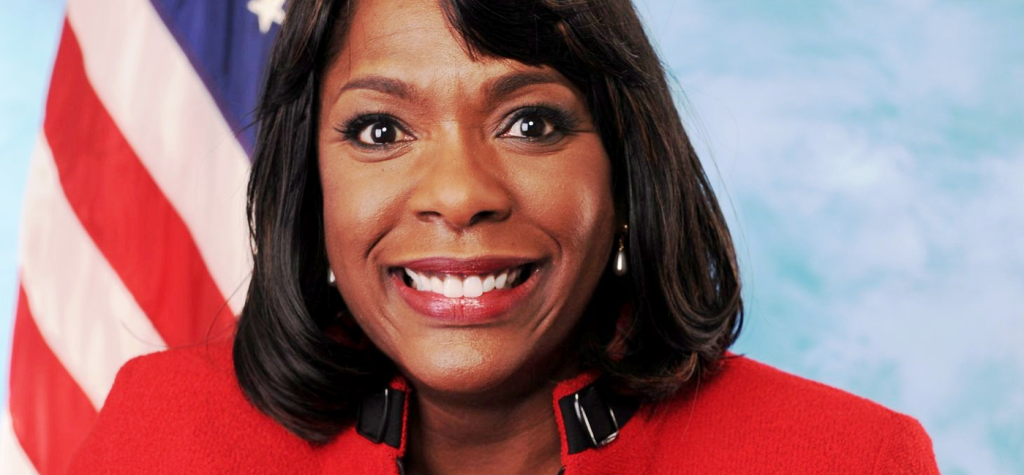
U.S. Rep. Terri Sewell says Alabama businesses and workers would benefit from expanding U.S. trade opportunities. Sewell invited U.S. Trade Representative Michael Froman, President Barack Obama’s chief official on international trade, to visit Alabama to discuss the importance of exports for the state economy. “Exports help drive Alabama’s economy,” Sewell said. “Alabama businesses exported $19.5 billion in merchandise last year, which supported more than 95,000 jobs. Access to foreign markets and fair trade policies that benefit American workers are integral, necessary components that will help Alabama exporters to continue to thrive and spur new job growth.” Froman said reducing taxes that the U.S. pays to export products from Alabama and other states, as well as improving labor standards abroad, were key to supporting jobs in the state. “By tearing down those barriers and raising the standards in other countries, we level the playing field,” Froman said. “And we know when we level the playing field, our workers, our farmers, our ranchers, and our small to medium-sized businesses can compete and win.” Alabama exports — transportation equipment, poultry, soybeans, and cotton — could face tariffs as high as 50 percent, Froman said. “If we can get rid of those taxes and we can eliminate those tariffs, right now 62 percent of all Alabama’s exports go to either the Asia Pacific or the European Union,” he said. “They can do so much more if they get rid of those other barriers. Every billion dollars of additional exports support up to 5,000 jobs. These are good, high-paying jobs.” The ambassador’s visit comes at a pivotal point in the Obama Administration’s battle with Congress over expanding the President’s authority to negotiate trade agreements. Politico reported that so far only 20 House Democrats have agreed to vote in favor of giving the president “fast-track” authority to negotiate trade agreements and that the bill has well below the votes needed on either side to pass in the House and Senate. The legislation would also grant the president authority to finish a sweeping trade deal with several Asian countries. The Trans-Pacific Partnership (TPP) has taken more than 10 years to negotiate and sets trade terms with 11 countries along the Pacific Rim, including Vietnam, Australia, Singapore, Malaysia and Japan. The group of nations has a combined gross domestic product of $28 billion and represents about 40 percent of the world economy. Sewell called the “fast track” or trade promotion authority a “hallmark” legislation that would provide a framework for the upcoming discussions over trade between the U.S., Asia, and the European Union. Passing the agreement is one of the president’s last major priorities, but so far Democrats have been unwilling to support the deal. “Congress has before it some big decisions when it comes to trade,” Sewell said. “Today has given me the opportunity to ask some very important, pressing questions from my constituents, especially labor, and to raise concerns that they’ve had. The ambassador has left me with a lot of food for thought.” Among those concerns, Sewell said, were that companies not be lured away by relaxed labor and regulatory standards in other countries. “I think it’s important that, especially in Alabama, where we’ve seen some trade agreements in the past have caused certain companies to close and take up shops overseas,” Sewell said. “I just want to make sure that the American workers are not left behind and so one of the big concerns that I had, and that some of the local labor unions had, was making sure that they had a seat at the table and that the negotiating would take into account their concerns as well.” In a prepared statement issued late Monday, U.S. Sen. Jeff Sessions called the fast track legislation “unenforceable” and said that the administration is seeking “blind faith” that the Trans-Pacific Partnership will increase U.S. jobs and wages. “Everyone supports trade. The question — the most fundamental question of all — is whether they are good trade deals, that advance America’s core national interests, or bad trade deals, that undermine them,” Sessions said. “Poorly negotiated trade deals, instead of opening new markets for our industries, tilt the playing field even further in their competitors’ direction. The result is not freer global trade, but more mercantilist market domination.” Congresswoman Sewell remains undecided on both TPP and TPA. U.S. Sens. Richard Shelby and Sessions voted against expanding trade promotion authority in 2002. It remains unclear whether Shelby will support the deal.
Vermont Sen. Bernie Sanders to run for president
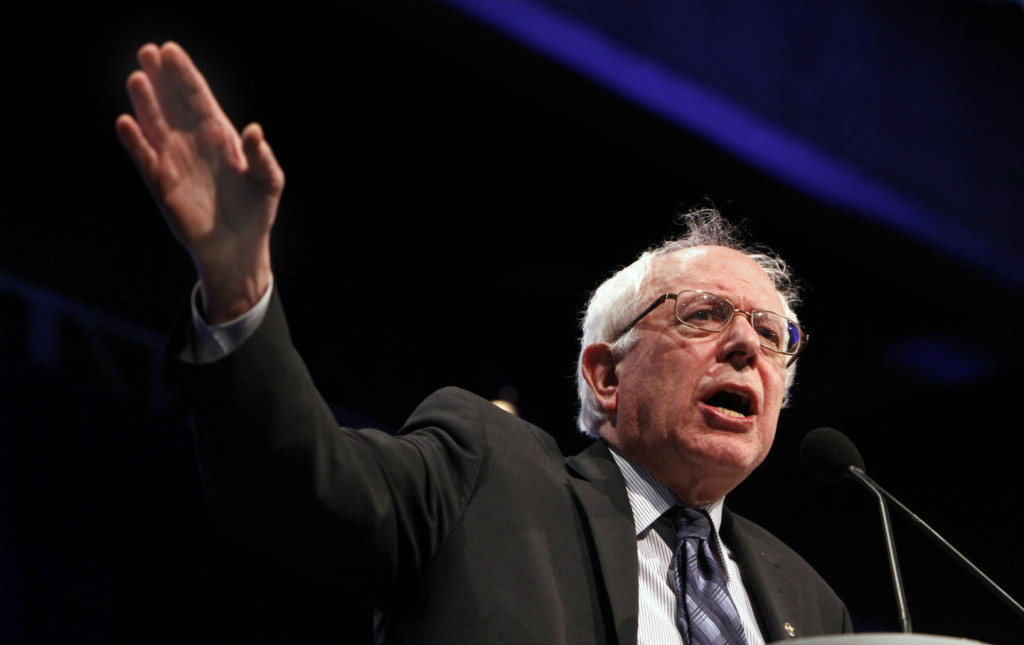
Vermont Sen. Bernie Sanders will announce his plans to seek the Democratic nomination for president on Thursday, presenting a liberal challenge to Hillary Rodham Clinton. Sanders, an independent who describes himself as a “democratic socialist,” will follow a statement with a major campaign kickoff in his home state in several weeks. Two people familiar with his announcement spoke to The Associated Press under condition of anonymity to describe internal planning. Sanders will become the second major Democrat in the race, joining Clinton. He has urged the former secretary of state to speak out strongly about issues related to income inequality and climate change. The former first lady and New York senator is viewed as a heavy favorite in the primary and entered the race this month. The white-haired senator and former mayor of Burlington, Vt., has been a liberal firebrand, blasting the concentration of wealth in America and assailing a “billionaire class” that he says has taken over the nation’s politics. His entry could be embraced by some liberals in the party who have been disenchanted with Clinton and have unsuccessfully urged Massachusetts Sen. Elizabeth Warren to join the race. In recent weeks, Sanders has been a forceful critic of the proposed Trans-Pacific Partnership trade agreement, which would eliminate tariffs and other trade barriers for the U.S., Canada and Asian countries conducting commerce with each other. “One of the key reasons why the middle class in America continues to decline and the gap between the very rich and everyone else is growing wider is because of disastrous trade agreements which have sent millions of decent-paying jobs to China and other low-wage countries,” Sanders said last week. Sanders generated attention in 2010 when he staged a lengthy Senate floor speech opposing a tax agreement by President Barack Obama and Republicans. He has called for universal health care, a massive infrastructure jobs and building program, a more progressive tax structure and reforms to address the U.S. Supreme Court’s Citizens United decision, which Sanders says has unleashed a torrent of money from big donors to political candidates. The senator has generated enthusiasm on college campuses and liberal enclaves in the early voting states of Iowa, New Hampshire and South Carolina and made several trips to court the influential Democratic voters there. “He will add color,” said Lou D’Allesandro, a Democratic state senator from New Hampshire. “He’s not bashful about anything.” Kathy Sullivan, a New Hampshire supporter of Clinton and a member of the Democratic National Committee, said Sanders’ decision was expected. “I know Hillary Clinton has always been expecting for there to be a competitive Democratic primary in New Hampshire,” Sullivan said. “I think he should be taken seriously.” Karl Rhomberg, a Davenport, Iowa, Democratic activist, said that while he expects Clinton “to be the nominee, I expect her to listen to Bernie, listen to (Martin) O’Malley and listen to people from the left.” He added: “If Bernie is going to put a stake on the left side of the field and draw Hillary toward it, that’s OK with me.” Sanders will start his campaign as a distinct underdog against Clinton, who remains the dominant front-runner. The Vermont senator is likely to face other challengers in the primary, such as O’Malley, the former Maryland governor, former Virginia Sen. Jim Webb and ex-Rhode Island Gov. Lincoln Chafee. A feisty voice for liberal policies, Sanders has long championed working-class Americans. He grew up in a Jewish family in Brooklyn — his father, an immigrant from Poland, sold paint for a living —and his views about the distribution of wealth were formed early. “A lack of money in my family was a very significant aspect of my growing up,” Sanders told the AP in December. “Kids in my class would have new jackets, new coats, and I would get hand-me-downs.” After his graduation from the University of Chicago, Sanders moved to Vermont in the 1960s as part of the counterculture, back-to-the-land movement that turned the state from solid Yankee Republican into one of the bluest in the country. Sanders lost several statewide races in the 1970s before he was elected mayor of Burlington in 1981 — a race he won by 10 votes. He was elected to the House a decade later, then won a Senate seat in 2006. He has carried a consistent message during his political career, arguing that the system is rigged in favor of the wealthiest Americans to the disadvantage of the nation’s poor and working class. Associated Press writer Kathleen Ronayne in Concord, N.H., and Catherine Lucey in Des Moines, Iowa, contributed to this report. Republished with permission from The Associated Press.


